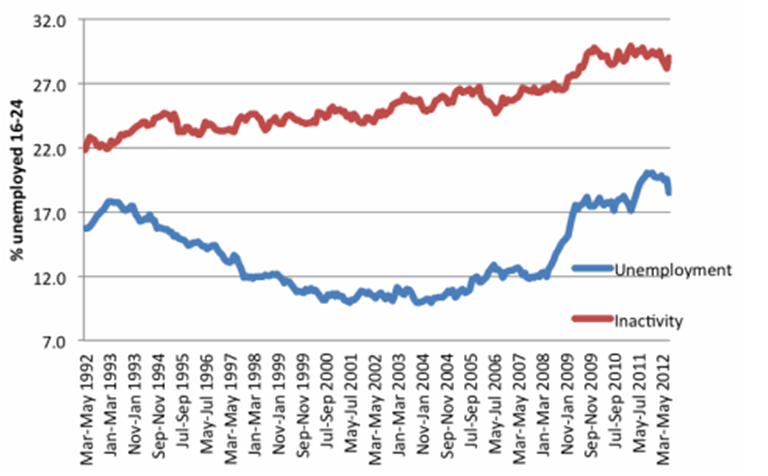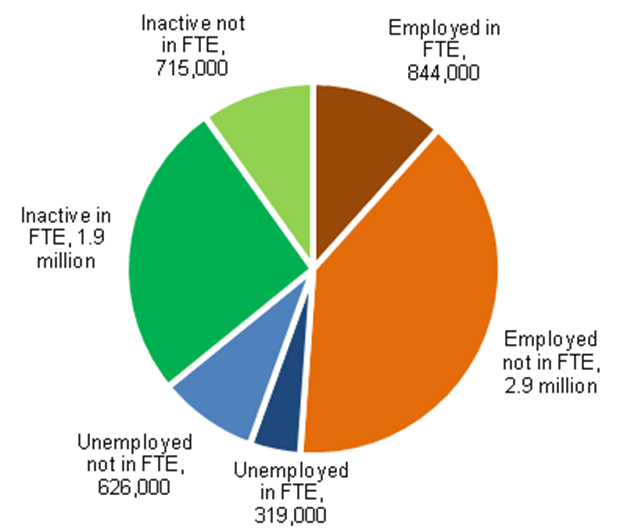The Scope of Youth Unemployment Problem in the UK
Unemployment is serious social and economic issue for the society, and unemployed individuals in many levels. Unemployment amongst young people is considered to be a special case as “young people between their required school life and their first job are very susceptible to unemployment” (Kurten, 2007, p.3). Moreover, a high level of youth unemployment has massive negative implications for the government on short-term and long-term perspectives.
According to International Labour Office (2012), individuals aged between 16 – 25, who are available for work in 15 days, not currently employed, and are looking for employment opportunities in an active manner can be classified as young unemployed. However, in the UK, the age range of young unemployed individuals is specified as 16 – 24 years old.
The level of youth unemployment has been consistently rising in the UK during the past several years (Figure 1). Moreover, it has been estimated that the numbers of young individuals who have not been working for more than 2 years have increased from 40,000 to more than 100,000 during the last four years, amounting to the increase of 168 per cent, and the numbers of Job Seeker Allowance claimants amongst young people have increased 315 per cent during the last six month (Al-Katib, 2012).
Figure 1 Youth unemployment and inactivity statistics
Source: Office of National Statistics (2012)
The lack of skills and experience amongst young people in the UK is considered to belong to the list of major reasons behind increasing level of unemployment. Moreover, continuing economic problems in the EU and the UK have been found to have negative implications on the local job market in UK in general, and the job market for young people in particular.
There is a stark difference on the levels of employment amongst young people who are engaged in full-time education, and young people that are not engaged in education to such an extent. Figure 2 illustrates the level of participation of both categories of young people in the UK labour market.
(FTE – full time education )
Figure 2 The level of participation of young people in the UK labour market
Source: Office of National Statistics (2012)
References
Al-Katib, H. (2012) “Long-term youth unemployment hitting UK” Press TV, Available at: http://www.presstv.com/detail/2012/12/13/277895/longterm-youth-unemployment-hitting-uk/
Kurten, N. (2007) “Youth Unemployment: Analysis and comparison of Austria, France, Germany, Portugal and Sweden” GRIN Verlag
Resource Guide on Youth Employment (2012) International Labour Organisation, Available at: http://www.ilo.org/public/english/support/lib/resource/subject/youth.htm


